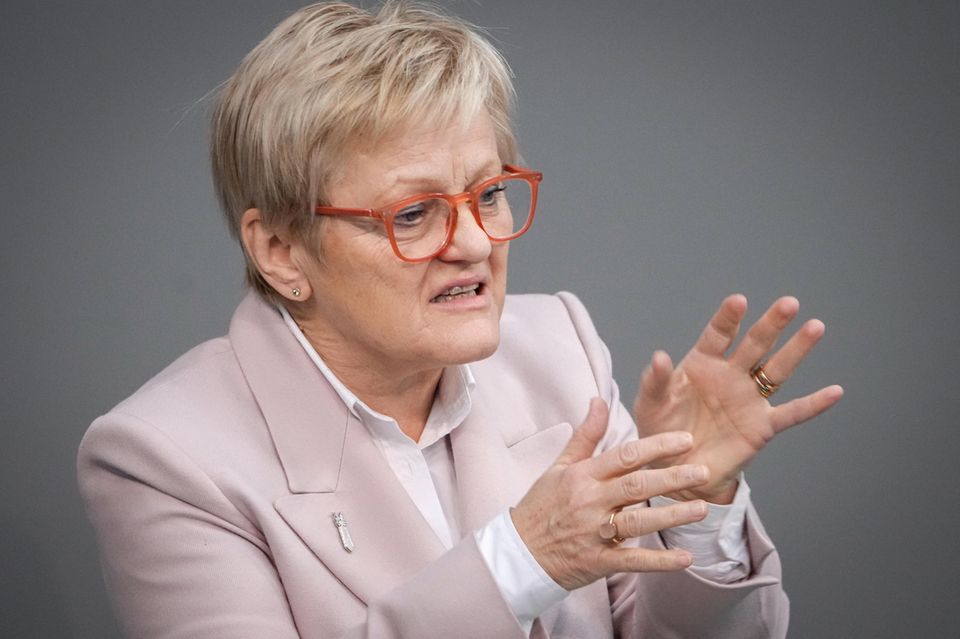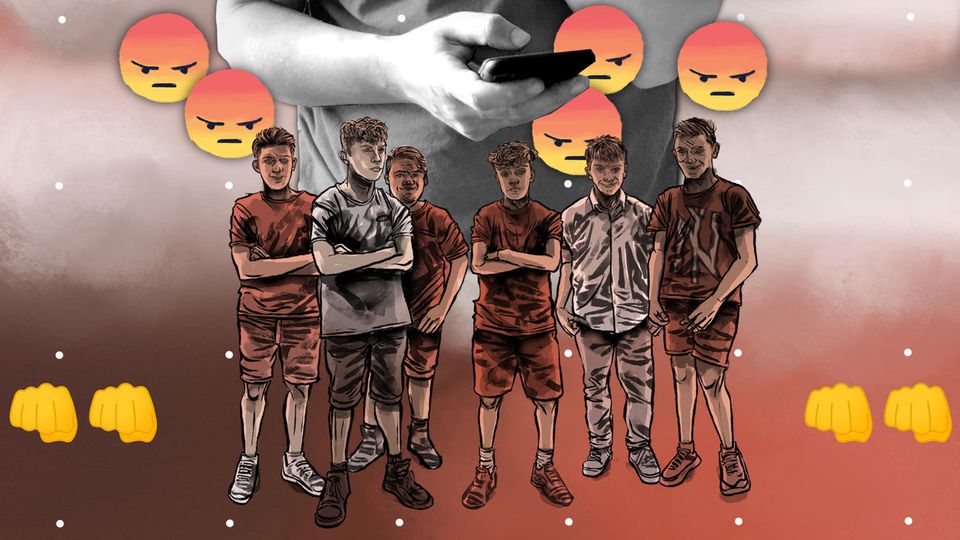guest post
Chebli and Künast on “HateAid”
Less money for victims of digital violence: “A slap in the face for all those affected”
Politicians Renate Künast (left) and Sawsan Chebli have been working together against hate online for years
© Christophe Gateau/ Jens Krick / Picture Alliance
The internet is becoming more and more toxic. And what does the Federal Minister of Justice do? Wants to cut funding for HateAid, a contact point for victims of digital violence. We both can defend ourselves against hate on the internet. Many others don’t. A guest post.
The announcement by the Federal Minister of Justice to eliminate organizations that fight digital violence and promote democratic online behavior is a fatal signal for those affected and the perpetrators.
Among other things, it affects HateAid, the only nationwide counseling center with a focus on digital violence and thus the central point of contact for those seeking help. The funds for advice, information and analysis are to be cut.
Why do we consider this a fatal mistake?
Social media are considered strongholds of freedom of expression and democratic participation. But they are increasingly becoming places of fear. We know that right-wing extremist networks arrange orchestrated shitstorms and try to silence or discredit political opponents with targeted attacks. Things have gotten worse since Elon Musk took over Twitter. According to the “Hate Speech Forsa Study 2023”, 76 percent of respondents from Germany have already noticed hate speech on the Internet. For 14 to 24 year olds it is 89 percent.
The internet is becoming more and more toxic, brutal and violent. As a result, more and more people are withdrawing from the Internet because of racist, misogynistic or anti-queer attacks.
We know from the municipalities that they now have problems finding people who are willing to get involved in politics or run for office. Many don’t even come to events anymore.
Social platforms do not offer effective protection against online hate

Sawsan Chebli, activist and author, was State Secretary for Civic Engagement in Berlin (SPD) until the end of 2021.
© Christophe Gateau / Picture Alliance
Because we know from our own experience what it means to be overwhelmed with digital violence every day. We know the organized attacks with the aim of pushing us out of public space. Hate doesn’t leave anyone cold, including us, but we both know how to defend ourselves against it, politically and legally. The majority of people affected by digital violence stand alone, powerless in the face of a digital monster that seems overpowering.
The social platforms do not offer effective protection here. Unfortunately, those affected have almost no lobby. You can contact the police in the event of a crime. But here there is often a lack of sensitivity in dealing with digital violence. In addition, they have so far had few means to defend themselves and protect themselves.
That is why we are fighting to ensure that those affected are given the necessary tools to be able to defend themselves against digital violence. At the political level, we are pursuing two key projects against online hate – the Digital Services Act and the Digital Violence Protection Act. The former took the Network Enforcement Act to the European level and added further obligations for the big internet companies to take action against hate and misinformation on their platforms. If they don’t, they face heavy penalties.
It needs more and not less help for those affected
In the coalition agreement, the federal government has also committed itself to fighting digital violence. “With a law against digital violence, we will remove legal hurdles for those affected, as well as gaps in the right to information, and set up comprehensive advisory services”. Only recently did the Federal Minister of Justice present the first key issues paper to the public. The Digital Services Act and a comprehensive Digital Violence Protection Act must now be passed in a timely manner.
It needs more and not less help for those affected, so that is the clear message of the coalition agreement.
We understand all the less that the financial support of the only nationwide counseling center is now to be removed. In concrete terms, the cancellation of funding means that, in the worst case, HateAid will have to turn away those affected who are looking for help in an emergency. However, this counseling work is a prerequisite for those affected to find out what rights and options they have to protect themselves and it is a chance to prevent even more people from withdrawing from the public space because they can no longer stand the violence there.
The end of support is a slap in the face for all concerned and sends the wrong signal to the haters. The latter should see themselves strengthened by this, because the message to them is: You can continue.
We and many others who work for democracy in the country expect a Federal Minister of Justice to make protecting democracy and fighting hate, bullying and right-wing extremism his main task.



